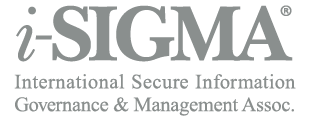Do you brag or provide proof?
August 14, 2014
By Ray Barry, NAID Deputy Executive Director
We are taught at a young age to not brag about ourselves. I tell my son this all of the time.
Any time we brag about ourselves and our companies, our prospects are unimpressed. But why do 80 percent of sales professionals start each proposal they give to a prospect with a canned template bragging about their company? Then, they blabber on and on about how they are the greatest, locally owned, smallest, largest, best looking, something company. Guess what? As my good friend Tom Adams says all the time, “they don’t care about our IT!”
Bragging is not believable and it turns the probable purchaser off. Our clients care about the same things we care about: profitability, no hassles, more free time, notoriety, etc. The best way to build know, like, and trust feelings and show them we are the best, or most secure, or friendliest is by using the most powerful tool in the sales toolbox: the testimonial.
When you say something about yourself, it is bragging. When others say something about you, it is proof. Those of you who have attended Shred School know that I could talk a whole day about testimonials and the best way to go about getting them. There is no doubt in my mind that the testimonial is the most powerful tool in the sales toolbox. It is more effective than your brochure, your shredder, and your salesperson combined. It is also the single most wasted resource in creating a marketing message. Not nearly as many secure destruction companies use them the way they should.
Testimonials can sell when salespeople cannot. For example, are you going to believe your neighbor who just purchased an automobile like the one you want, or the car salesperson? Do not just get testimonials, though. Get the right type of testimonials. The following are some suggestions on what testimonials should say:
- Testimonials should show action and have a call to action. “I used to use ABC Shredding; I switched to Ray & Bob’s Destruction, so should you too.”
- Testimonials should overcome objections or remove the barriers to a potential sale. “I thought their price was too high initially but I bought it anyway, and I am sure glad that I did.”
- Testimonials should reinforce a claim. “I earned more profit by utilizing them.”
Testimonials remove the risk of saying yes in the prospect’s mind. By asking a customer to tell you his/her reasons for purchasing from you also get several more clients just like them. Remember, why brag when you can provide proof? The company with the best testimonials wins. Period.

